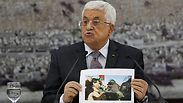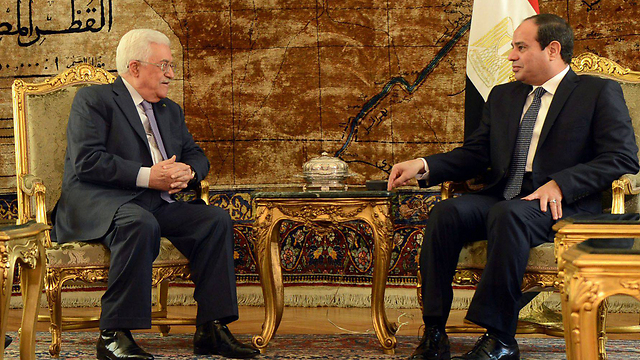
Since then, both sides have learned to live with each other within the big holes of the Oslo Agreements. The mutual recognition has faded, and instead of peace we see growing settlements and violent provocations, with no solution in Jerusalem. Together with Palestinian President Mahmoud Abbas, we led to the dubious democratic achievement of handing the control of Gaza to Hamas.
The security cooperation is the heart of the Oslo Agreements. It is the most important, most sensitive issue between Ramallah and the IDF headquarters in Tel Aviv: Everything that has to do with thwarting terror attacks, protecting the "Rais" and his seat and offering a concrete solution to problems which could spark a great fire.
If it were not for the daily discreet coordination, if it were not for the Shin Bet's involvement in thwarting terror attacks and arresting Hamas activists, no one would have been able to promise Abbas that he would survive for so many years without a single hair on his head harmed. In the double game he is playing, Abbas complains about Israel (and he definitely has good reasons for that) while owing Israel a big debt.
The Palestinian leadership will convene at the Muqata on Sunday evening. Three of Abbas' associates have sworn that after Palestinian minister Ziad Abu Ein's death following an encounter with IDF forces, there is nothing left to talk about with the Shin Bet and Civil Administration. As far as they are concerned, the security cooperation is dead, or will at least be put in deep-freeze until further notice.
But we should pay attention to the fact that Abbas has cloaked himself in silence. US Secretary of State John Kerry, Egyptian President Abdel Fattah al-Sisi and Jordan's King Abdullah telephoned him over the weekend in an attempt to persuade him not to go too far. It is in al-Sisi and Abdullah's best interests that Ramallah does not break the rules of the game until after the Israeli elections and until Hamas is crushed.

Abbas is rocking on his chair. On the one hand, he is a rais without elections in the horizon. No one, including the American administration, which boasts democracy, will push for elections that could end in a nasty surprise. On the other hand, he is also a rais without masses following him and without achievement. Prisoners have not been released, lands have not been returned, the economy has not grown. He has even failed to develop the planned city of Rawabi.
More and more, you hear the phrase "rahat Palestine" (there goes Palestine). If until now the word "rahat" was said about every loss and failure, now they mean that Palestine has disappeared – that the chance of building a state is gone – and the responsibility for that falls on Abbas' hunched shoulders.
I believe Abbas when he says he is not interested in setting the West Bank alight. He is now pursuing the recognition he lost in Oslo through international institutions. It's not easy. It's also not easy living in a security void. If he fails to market the "good neighbor" image, scores will be settled with him.
Abdullah in Amman and al-Sisi in Cairo are warning him against Saleh al-Arouri in Turkey, who is working to upgrade and bolster Hamas. Following advice from the Israeli intelligence to the palace in Amman, 31 Hamas activists were thrown in jail, along with the Hamas secretary-general in Jordan. They had been planning to smuggle weapons into the West Bank, launch terror attacks on Abbas' territory and topple him and the government institutions.
A similar affair took place in Egypt. A huge wave of arrests following intelligence information and a crisis with Turkish President Recep Tayyip Erdogan, Hamas' patron.
On Sunday evening in Ramallah, Abbas will have to find the key to traversing two routes without falling. He is already being told to wait patiently for the Israeli election surveys, to see what Isaac Herzog and Tzipi Livni's chances are and who will form the coalition. He knows them very well, and he definitely intends on intervening in the elections – against Benjamin Netanyahu.
















